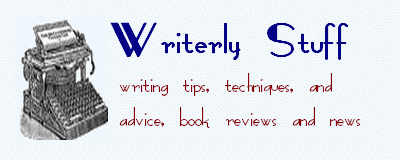So...you've done your homework. You've written and rewritten your novel, had other people look it over for you (not your spouse, not any of your relatives--trust me, you don't want to put those you love into that kind of situation). You've written and re-written the query letter.
Now, what about agents and publishers? Do you do a scattershot approach, hoping something sticks.
Please, please, please...don't do that. Your homework isn't over as yet.
Literary Agents
Where the Heck Do I Find Them?
You could Google "literary agents," but then you'd come up with so many (and quite a few dubious ones) that you'd probably just pass out and forget it.
Agent Query is a good place to start. You can select either non-fiction or fiction, among other things. Browse through it; get a good idea of the agents within.
Then go to Preditors and Editors (see the sidebar for the link). Check the agent and the agency in the extensive listings. If there's a dollar sign, that means the agent has sold books to publishers (exactly what you want, of course).
You're not done yet. Head on over to the Absolute Write Water Cooler and go to the Bewares and Backgrounds board. Do a search on the agent; pull up any threads that come up, and pore over them. If nothing comes up, start a new thread and ask about the agent or agency--anything good or bad, have they sold books, etc. And make sure you give a website if you've found one: A lot of people will be able to tell whether they're on the up and up by what is (and isn't) on a website.
Another site to check is the Writer Beware Blog (see link). If you email Victoria Strauss with the name and website of any agents or agencies that don't sound or feel right to you, she'll let you know if she's received any complaints on said agent/agency. She's a superb writers' advocate; read the blog, too, which will give you many more insights than I could possibly write here.
Check Their Backgrounds
Anyone can say they're a lit agent; I could, but I would be inept beyond belief.
Why? Because I haven't worked in the publishing industry. I wasn't a junior agent at an established lit agency nor did I work as an editor at a commercial publisher.
Now you're wondering...why the heck does an honest-to-goodness agent need that sort of background? Can't a published writer--or an unpubbed one who knows more than a little bit about the publishing industry--set up shop?
In a word--No. All your goodness ain't gonna cut it. And that's because when you work for a legit literary agency or at commercial publisher you have contacts with those people who can get your manuscript before the right people.
I wouldn't have a clue as to who to contact; I've never worked in any sort of publishing capacity. I might really, really be trying to get your manuscript to the right people...but best intentions aren't going to work in this industry.
It doesn't matter if you're an author who's had 10 books published by DEF Publishing Company. Unless you've got the contacts, all your hard work will be for diddly-squat.
So after getting together your list, check the backgrounds of the agents you have in mind. Do they represent the type of novel you've written? If not, scratch that one off your list; do not send an agent something she doesn't rep.
BTW, have you figured out what type it is? Is it genre, like fantasy, romance, etc? Or is it mainstream? Literary? This will help you decide what agents to investigate and which ones to forget about.
If the agent does rep that type of novel, look at the agency's website: Does it have a list of books sold to reputable publishers? These can be small graphics of book covers or just the name of the book and the author's name.
A reputable agency or agent is going to shout from the rooftops as to the books they've sold. Period. Hiding such things makes that agent/agency out to be a scammer (because they have sold anything) or clueless at best (because they don't have any inside-the-publishing-industry experience).
Check the submissions guidelines. Some agents accept email queries, but some still prefer snail mail. Follow the guidelines to the letter.
Okay. Send your query in the preferred manner--and start writing your next book. You want this to be a career, don't you? So do agents. After all, the reputable ones make a living from the commission they charge you. They don't make a dime until they've sold the manuscript to a publisher.
Remember, money flows to the writer.
I've run out of time, so I'll talk about scam publishers tomorrow.
Happy writing!
Opting Out of the Bartz v Anthropic
2 weeks ago


